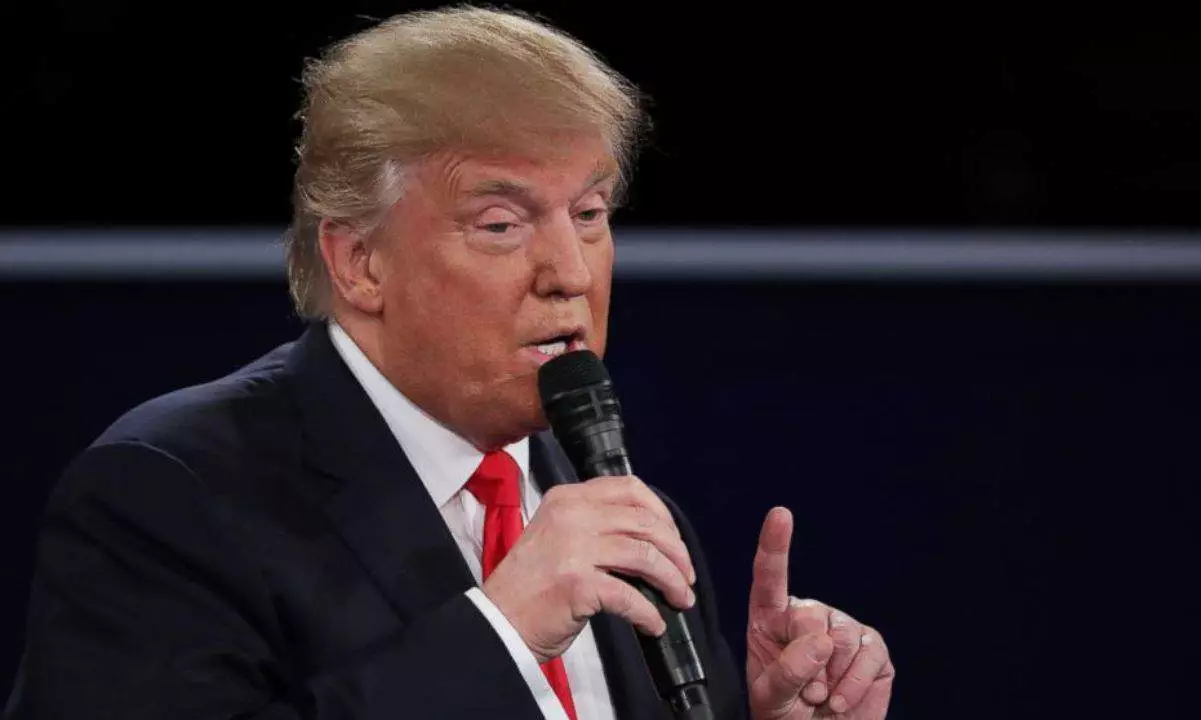In a move that has sent ripples through the cryptocurrency world, President Donald Trump issued pardons to the founders of BitMEX, a Seychelles-based crypto exchange, amidst a backdrop of political maneuvering and cries of unfair treatment. This action marks a pivotal moment not only for BitMEX, which had been embroiled in legal disputes following its guilty plea to money laundering charges, but also for the broader narrative around regulatory overreach in the crypto sector. Trump’s decision to pardon the entire BitMEX team—including founders Arthur Hayes, Benjamin Delo, and CTO Samuel Reed—signals a shift in sentiment towards crypto businesses under scrutiny from government regulators.
The pardons came with little fanfare, lacking the dramatic buildup that surrounded previous high-profile clemency decisions. Unlike the much-talked-about pardon of Silk Road creator Ross Ulbricht, which ignited fervent discussions in both crypto and political circles, the BitMEX pardons were somewhat understated. Nevertheless, they raise significant questions about the future of regulation in the crypto arena, particularly regarding how governmental entities interact with emerging technologies that challenge traditional financial systems.
Political Motivations Behind the Pardons
Critics have posited that the pardons may reflect deeper political motivations. As Trump prepares for another run at the presidency, aligning himself with influential figures within the crypto community may be part of a broader strategy to galvanize support from libertarian-leaning voters. His assertions of governmental overreach could resonate with these constituents, particularly when framed against the backdrop of BitMEX’s claims of being a scapegoat in a politically charged environment.
Delo, one of the pardoned founders, framed their legal troubles as an example of how established entities within the financial system target innovators within the crypto sphere. His statement that they were “sacrificed for political reasons” is emblematic of a wider sentiment within the crypto community, which often perceives itself at odds with regulatory bodies that seem ill-equipped to manage the nuances of blockchain technology.
The juxtaposition of the BitMEX case against the backdrop of the broader financial landscape begs the question: are regulatory bodies misusing their power to suppress innovation in favor of maintaining the status quo?
The Broader Implications for Cryptocurrency Regulation
This unprecedented pardon raises a host of questions surrounding regulatory compliance and accountability in the crypto industry. Does this decision foreshadow a shift in the regulatory environment for cryptocurrency exchanges, particularly as they continue to face scrutiny from authorities? Will other founders of prominent crypto platforms, such as Sam Bankman-Fried of FTX, follow in BitMEX’s footsteps in seeking presidential clemency—or even a rollback of harsher penalties imposed during previous administrations?
Trump’s exact reasons for these pardons may remain opaque, but the implications are clear: a potential loosening of the regulatory grip on the burgeoning crypto economy could have far-reaching effects. For an industry often criticized for its unpredictability, the notion of clemency offers a glimmer of hope amidst a storm of regulatory uncertainty.
The Ripple Effect in the Crypto Community
The immediate aftermath of the pardons has unleashed a torrent of speculation about who might be next in line for similar relief. Figures such as Binance’s Changpeng Zhao and FTX’s Sam Bankman-Fried find themselves at the epicenter of a bubbling dialogue questioning the integrity of crypto regulation and the motivations behind enforcement actions. Notably, there is a palpable sense within the crypto community that these recent actions could empower operators and entrepreneurs who aim to push the boundaries of financial technology.
In this environment, individuals like Arthur Hayes—who became the youngest African American billionaire and then found himself facing legal repercussions—offer a narrative that many in the crypto community find inspiring. The possibility of a reconciliatory stance from the administration could foster an environment conducive to innovative financial solutions, encouraging investment and involvement in the crypto sector.
Moreover, as BitMEX embarks on a path forward, its founders are already leveraging their pardons into philanthropic endeavors, illustrating a desire for redemption beyond mere financial success. This aligns with a broader ideological narrative that sees crypto not just as a financial tool, but as a means of fostering a more decentralized and equitable society.
Controversy and Support: The Reaction from Various Quarters
The response to the pardons has been mixed. While many in the crypto community express tangible gratitude towards Trump, others remain skeptical. Notably, figures like CNBC’s Jim Cramer have speculated on the broader implications of these actions, suggesting that they could signal a seismic shift in how such offenses are treated.
What’s clear is that Trump’s decisions have reignited discussions about the evolving landscape of digital currencies and the legal frameworks governing them. Furthermore, they have empowered a narrative of resistance against what is often viewed as excessive government intervention.
As this story unfolds, one can only wonder: how will the pardons impact the future of cryptocurrency regulation and what precedent does this set for other emerging technologies? The crypto community is watching closely, and the implications are likely to be felt in regulatory departments and boardrooms across the globe.


Leave a Reply